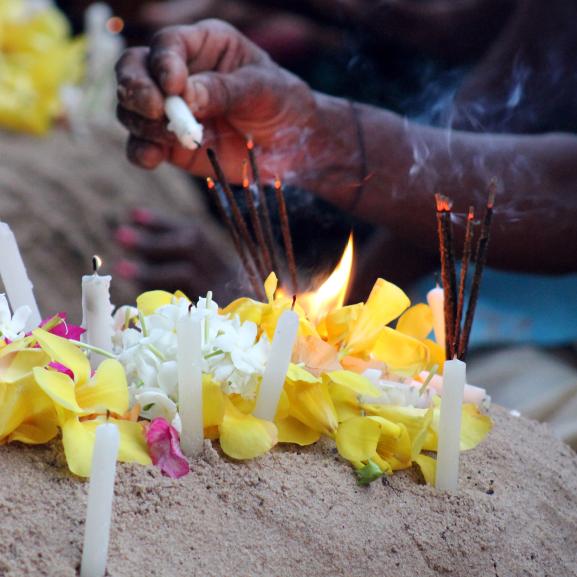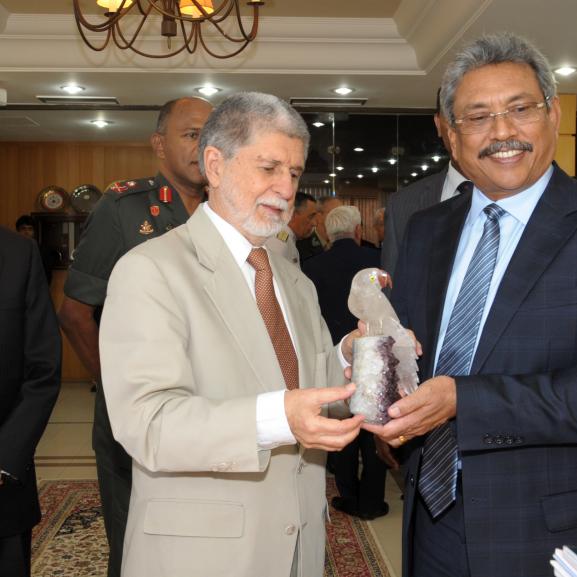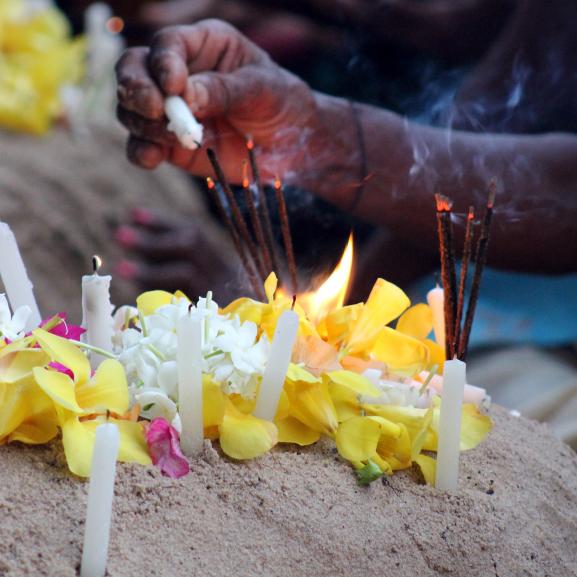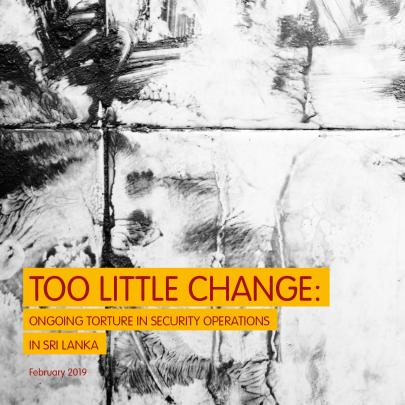After surviving torture and escaping my home country, I finally came to terms with my queerness
Aadiv (not his real name), a Sri Lankan refugee and dancer who lives in London, shares his experiences of recovering from trauma, surviving in a new country and discovering his sexuality.
- This story originally appeared on PinkNews. on International Day in Support of Victims of Torture (26 June) -
Growing up in Sri Lanka as Tamil was very hard. As a child, I remember that we moved around a lot. There would be the sound of bombs, wreckage, fighting, and then we would move to the next place.
There were five of us siblings. I lost my older brothers.
Tamils have been discriminated against in my country for a long time. Around the time of my birth, civil war broke out in our country between the government and the rebel group the Liberation Tigers of Tamil Elam (LTTE). Kidnappings and violence towards Tamils were common. They remain missing to this day. The civil war ended in 2009, but harassment by military forces, torturing and discrimination didn’t stop there.
When I was 21 years old, I arrived in the UK on a student visa to study English language. Things were getting bad in my country — Sri Lanka was not safe for Tamil people, it was a controlled authoritarian state.
They were checking and catching Tamils everywhere. Our leader wanted everyone that undermined him to be finished. Along with other Tamils fleeing the country, I knew I had to leave.
If I stayed there, they would kill me.
Two years later my father had some health issues and I decided to brave a trip back to Sri Lanka to see him. Upon arrival, I was arrested and tortured for suspected activities with the LTTE in the UK.
I was held for two weeks and tortured each day. The authorities had been watching me because I was working odd jobs here with other Sri Lankans. They suspected us of plotting against the Sri Lankan government.
I was released only after a family member arranged to bribe the guards. This happens a lot in my country.
After that, Sri Lanka was hell for me. If I stayed there, they would kill me. I fled to the UK for a second time, but everything had changed.
I fell into a deep depression and felt that I was out of options. Before the torture, I used to be a fighter – I fought for everything in life.
But without a roof over my head or any family here, the trauma defeated me. I was always scared and crying. I was homeless, staying at places that were dirty, or sleeping in the street or the park. I attempted suicide twice.
A few years later I was referred by my GP to Freedom from Torture for psychotherapy and welfare help. That’s when I first met Emily, the therapist assigned to me. At the time, I was living and sleeping in a friend’s car. I didn’t feel like a human being. The people you meet in this situation are unlikely to have much themselves.
I was so nervous and quiet. She was kind and listened to me. I saw her every two weeks for a session and she became my lifeline. I started to improve mentally and I made other Tamil friends here, who were also torture survivors.
This is my sexuality and I can express it here, in my new home.
It took me a long time to open up about what happened. For a long time, I couldn’t talk about my sexuality and didn’t think of myself as gay in Sri Lanka. I found it really complicated. I didn’t trust anyone. I felt very uncomfortable when talking about conflict and life for us Tamils.
My English was a barrier, but it was improving every day. But I still felt low and suicidal. I didn’t recognise myself for a long time.
In therapy, Emily would ask about my sexuality and I wouldn’t know what to say. I kept these feelings inside – it made me scared, shy and nervous.
It took a while to open up and make sense of things. At first, I felt really sad. I thought: “Oh my god, why am I like this?”
And then I talked more and more. I’m very confident now and ready for myself. This is my sexuality and I can express it here, in my new home.
If someone asks me if I’m gay, I say: “Yes, I am gay.” A very long journey of survival and pain has taken place for me to arrive at these words.
With Emily’s help, I was taken into accommodation and given an asylum allowance, which meant that I could buy food. It took three years, but I finally got my refugee status, which meant that I could stay in the UK.
There were lots of little and big problems – like where I could get clothes and shoes. Buying ingredients was more expensive than going to the chicken shop and getting a burger and chips for £1.99. It wasn’t healthy, but it filled my stomach.
I spend a lot of time dancing. My favourite is classical dancing, a traditional Tamil dance with Indian beats. I belong to a Tamil group and we do performances for the Sri Lankan diaspora here in London. In my spare time, I watch a lot of documentaries on dance and drama.
I finished my therapy a while ago. I learned so many things about myself. Emily said that things won’t get fixed overnight, but now I am strong enough to face it.
Once again, I am fighting fit.
I have hopes for the future and I am very ambitious. When I think back and see the difference that people like Emily made along my journey, I want to give something back. I would like to study and become a nurse. I like to look after people.
Torture took away my voice. But support and care made me regain my identity and better understand who I am.
The message here is a simple one: be patient and look after each other.






